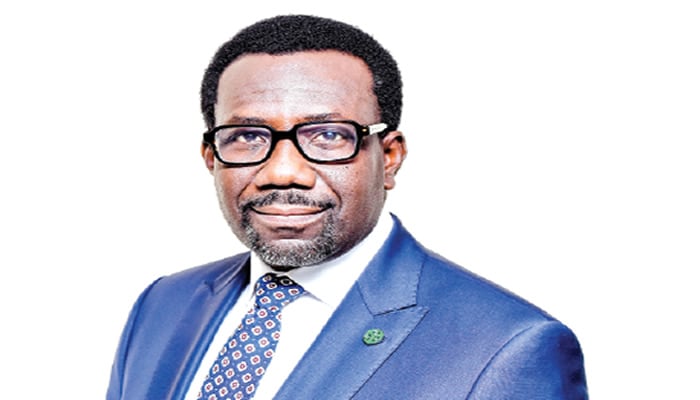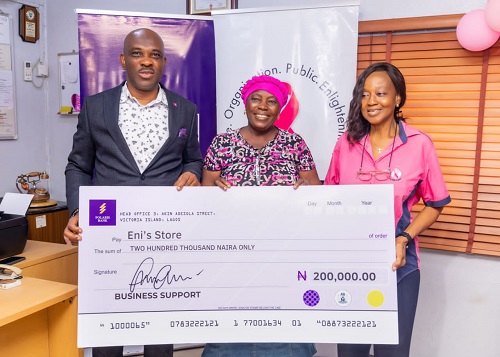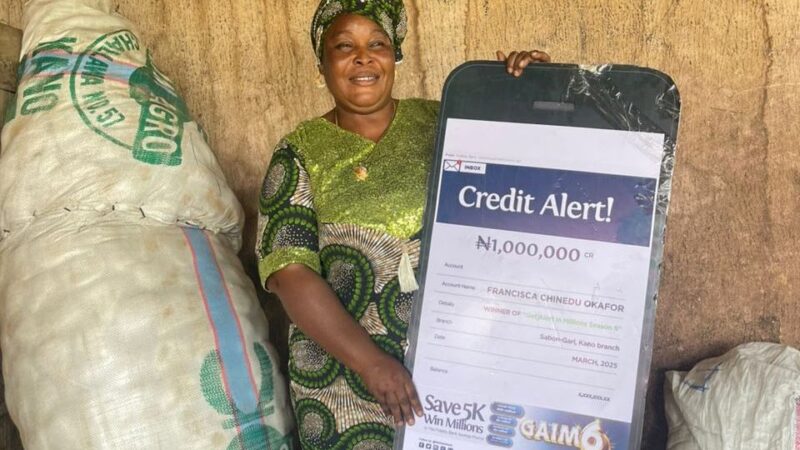Accion MFB plans N60bn loans for MSMEs
 Accion Microfinance Bank has revealed that it is looking at providing about N60bn as loans to micro, small, and medium-scale enterprises in the country in 2025.
Accion Microfinance Bank has revealed that it is looking at providing about N60bn as loans to micro, small, and medium-scale enterprises in the country in 2025.
This projection was made by the Managing Director/Chief Executive Officer, Accion Microfinance Bank—Taiwo Joda—in a chat with journalists following the lender’s annual Financial Inclusion Seminar themed, ‘Digital Lending: A Path to Financial Inclusion or a Barrier for the Informal Sector?’
The FIS is an advocacy platform for the microfinance industry, offering regulators, players, customers, and civil society stakeholders an opportunity to discuss trends and the way forward for the subsector.
Speaking to journalists, Joda said, “The excitement for me is not this year but next year.
“We have seen a 1000 per cent increase in uptake when we change from offering manually to bringing the product to the digital space. In the coming year, you will wonder whether it’s Accion MFB or Accion Fintech. For this year, we have done an average of N3bn per month in loans, so we have done about N33bn this year. But in the last 10 years, we have done about N250bn to MSMEs. Our average loan is N700,000.
“Next year, we intend to do N60bn in loans for MSMEs. We will double our loans to customers for two reasons. Even for customers to maintain their business at the same level, they need more funds, and we also intend to grow our customer base. Every month, we have an average of 20 per cent of new customers, and next year we are growing to four new locations. We are going to open a branch in Kwara State and new branches in Abuja, Kano, and Kaduna States. As we move there, we are going to deploy technology and acquire new customers.”
He also emphasised that e-commerce adoption of its products was on the bank’s radar.
“We are looking at collaboration with e-commerce platforms. We are looking at B2B. We are looking at targeting the youths, the Gen Zs, and those are the areas where our products are redesigned,” he asserted.
On the theme of the seminar, Joda added, “From what we have looked at today, there has been a lot of noise about digitisation, but there are still a lot of people at the bottom of the pyramid. Are we neglecting them, or is digital helping them? So you see a woman who is taking a loan of N10m and saying, ‘I won’t press my phone’ because she’s not sure that if she uses her phone, all the money will disappear or not. We have established today that there is an issue of trust, and when you have an issue of trust, it is going to affect the uptake of digital innovation. From feedback, there must be strong collaboration with expected users for digital literacy. So what are we going to do next year, and what do we expect the ecosystem to do? It is to step up collaboration with the expected users of our services on digital literacy. Even if you have been doing it, do it more. We are going to do a monthly virtual meeting with our customers on new trends, threats, and how to protect themselves.”
Joda disclosed that the bank’s nonperforming loans are in single digits and that it has come down from last year.
“That is the beauty of technology. With technology, you can create a rigorous machine reading that helps you to manage risks. I also think it is a misrepresentation of facts that you think that the poor don’t repay loans. They pay. I think I have more problems with the rich than the poor. We have had a lot of issues since COVID-19 in Nigeria, and because we deal with people and businesses that are vulnerable, the macroeconomic vagaries affected their businesses, and some of them are not able to pay because the business failed, not because of character. If I look at cases of default as a result of a deliberate mindset, it is less than three per cent but there are instances of default due to economic challenges.”
The Chief Digital Officer of Ion Microfinance Bank, Paul Ehiagbonare, in his comments, highlighted how digitisation had helped, saying, “We are very deliberate and strategic when it comes to digital transformation. For us, it is about accessibility. We digitised a product, and in 10 weeks, it did about 1000 per cent more than what it had done in three years. It made clear the power of effective and clear digitisation. We digitise so that the customer is at the centre of it. We digitise in a way that allows us to meet them where they are.”







